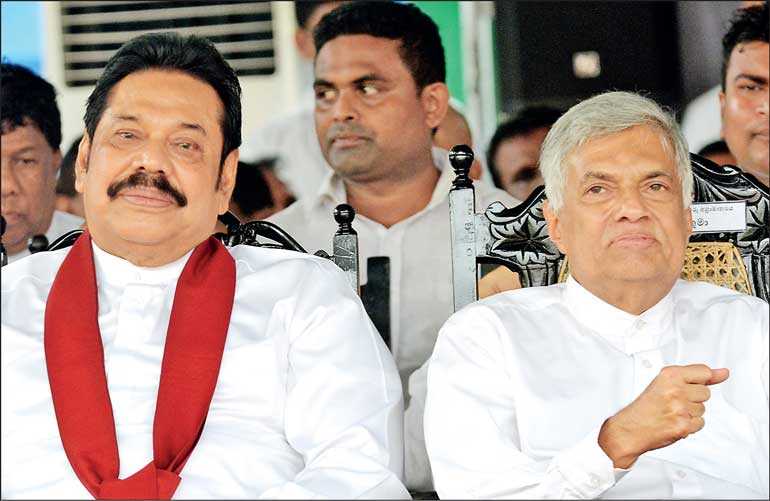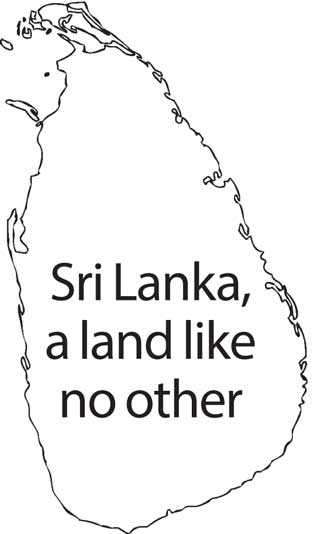Friday Feb 20, 2026
Friday Feb 20, 2026
Friday, 6 September 2019 00:00 - - {{hitsCtrl.values.hits}}

The Bandaranaike family created the first oligarchy type of government. Oligarchy is rule by the few. In the ’90s, we had Chandrika Bandaranaike as President, her mother Sirima as Prime Minister and later her brother Anura as Speaker of Parliament. Fortunately for Sri Lanka they were all harmless people.
Anura Bandaranaike to his credit it must be said that he was one of the best Speakers of the House of Representatives. Essentially, they were fundamentally Democrats and liberal in their thinking. So they were largely hospitable to structure and rules. 
When Mahinda Rajapaksa got elected in 2005, his brothers who were citizens of the United States returned to Sri Lanka to take up key positions in the Government. They got together and created a very powerful oligarchy. An oligarchy family type government is a type of government where control is given to a small group of people in a family. Unfortunately or fortunately for Sri Lanka, the Government was run essentially by one family, no outsider had a say – totally contrary to what we see today with the Sirisena administration.
There have also been some good oligarchy administrations where a number of distinguishing factors among the people in the group were their wealth, political, religious, or business ties, that created a good balance for the administration. In most cases now, the families are the rulers in oligarchies, and this power is passed down from generation to generation.
Oligarchies have gained a reputation for being tyrannical and oppressive. However, many governments around the world use some form of oligarchy, such as appointing representatives to determine national policy or to fight terror. Only when there is a limitation in the separation of powers and when the rule of law is violated does an oligarchy become tyrannical. Today, this form of government is still practiced in some nations, and if a Rajapaksa wins the presidency, we will once again see the emergence of the next powerful oligarchy.
Sri Lanka going forward needs good laws to prevent the top three jobs in the country being held by one family. Many political analysts argue that had any one of the Rajapaksa brothers been a lawyer, he may have ended being appointed as the Chief Justice of the country during the Rajapaksa family battle with CJ Shirani Bandaranayake. That would have meant the Rajapaksa family effectively controlled all four branches of the administration.
Ranil Wickremesinghe on the other hand created an oligarchy with his Royal College friends, Malik Samarawickrama, Arjuna Mahendran, Charitha Ratwatte, etc. They took all the key decisions. They put their Royal College friends into key positions in the economy. That Royal College oligarchy ruined the Yahapalana Government and Ranil Wickremesinghe’s political future, making him unpopular with the public, therefore oligarchy administrations are bad for democracy, especially in a country full of gullible people.
Even businesses now oppose monopolies and cartels because they are considered bad for the economy and business. Competition is thought to deliver better economic outcomes. Power must be enshrined with the people through free elections.
Sri Lanka does not need monarchies. Generally monarchies are ruled by a king or queen and that is the last thing we need to secure our future. Throughout most of history, the monarchs’ powers were absolute. Today, worldwide most are now constitutional monarchs, and they serve as symbols of the state with few real powers.
Strong democracy and able leaders are what we need. A rule by the people through their representatives. Today, this is the dominant form of government anywhere. Unfortunately, many Sri Lankan people believe that their representatives do not always act in the interests of the people they represent and they only attempt to accumulate wealth. This needs to change for the better.
The existence of political dynasties has important consequences for our democratic legitimacy. A small number of families monopolising political power can undermine the quality of democratic representation for citizens. The public needs to consider this as we prepare for the impending 2019 presidential race.